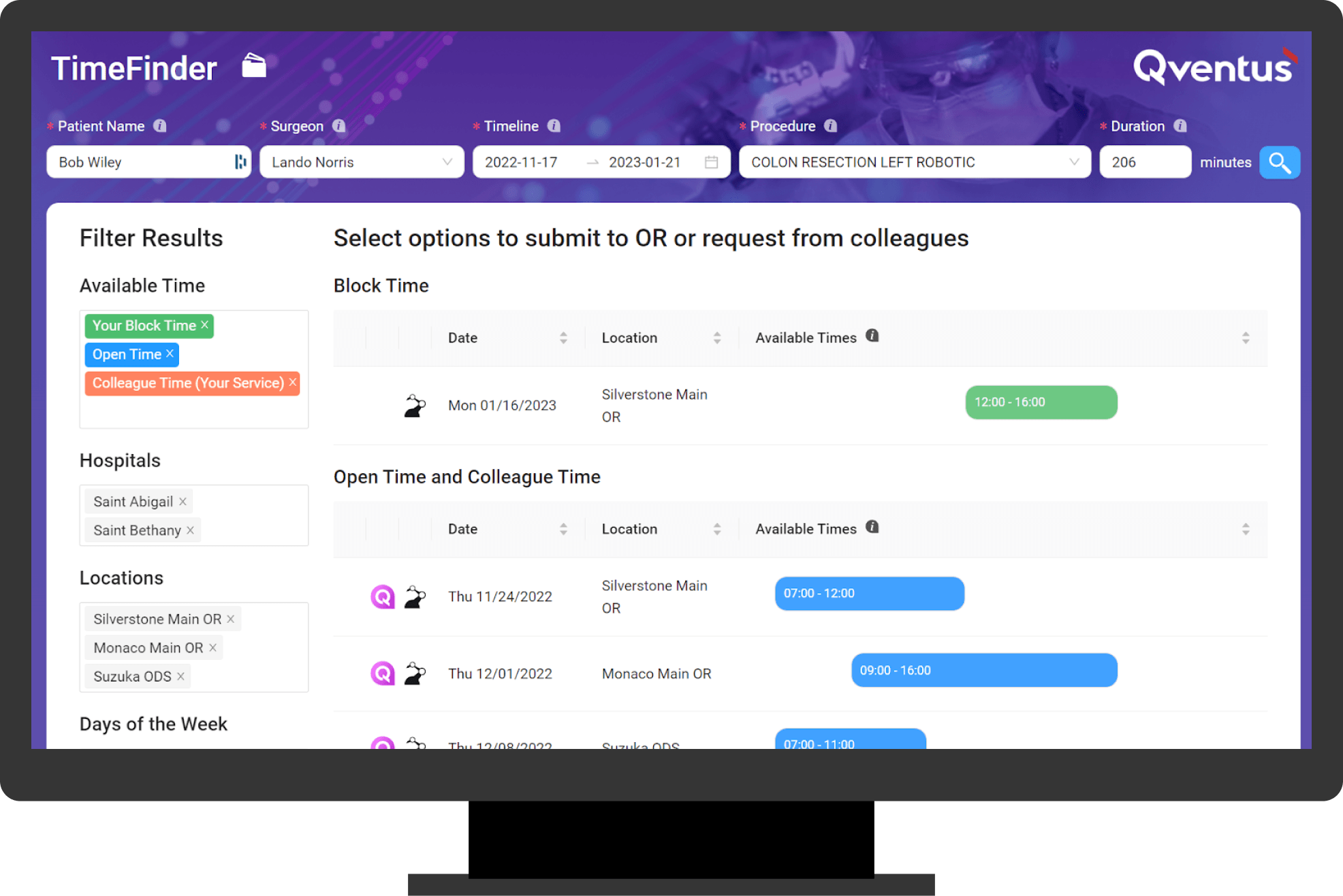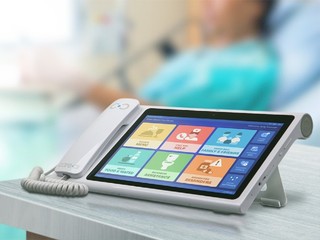Global AI in healthcare market expected to rise to $164B by 2030
The market size for 2023 was $10.31 billion
Read more...
Often in perioperative care, capacity is not just underutilized, but misutilized. For example, 30% to 40% of surgeries in robotic rooms are non-robotic cases, or surgeries that are better suited for an Ambulatory Surgical Center, are booked in the main OR, causing months of delays. It also prevents patients with acute need from receiving the care they need; on average, patients wait between 1 to 3 months to receive their surgery.
That's where Qventus comes in: the company is an AI-based software that automates care operations. Deployed by health systems across the country, including Northwestern Medicine, Honor Health, New York Presbyterian, Allina Health, and Tenet, the company addresses real-world challenges in healthcare, from reducing administrative burdens and improving patient care to optimizing surgical operations and discharge planning.
Now it has a new partner, announcing that Ardent Health, a provider of healthcare services in communities across the country, has chosen Qventus’ Perioperative Solution to optimize its robotics program and drive strategic surgical growth.
Ardent Health, which went public in July, delivers care through a system of 30 acute care hospitals and more than 200 sites of care with over 1,700 affiliated providers across six states.
"Qventus works with hundreds of hospitals to automate many administrative tasks required for helping patients through their clinical journey—things like getting access to surgery and coordinating care in a hospital so that patients can leave in a timely way," Mudit Garg, CEO and co-founder of Qventus, told VatorNews.
"By deeply understanding the challenges healthcare providers face and applying modern technologies and principles proven effective in other industries, Qventus empowers care teams to make smarter decisions and optimize patient flows while reducing the cognitive load on team members and improving the overall patient experience."
Qventus’ Perioperative Solution, which is being adopted by Ardent Health, assists with optimizing, forecasting, and automating operating room scheduling and utilization processes by integrating with EHRs and layering on billions of claims data points.
Powered by automation, artificial intelligence, machine learning, and behavioral science, Qventus’ algorithms predict which block time slots will or will not be utilized, intelligently nudge surgeons to release unused time, and proactively recommend best-fit cases to fill open time based on surgeon practice patterns, health system priorities, and more.
Through this partnership with Ardent Health, Qventus will reach Ardent’s national network, which delivers care through a system of 30 acute care hospitals and more than 200 sites of care with over 1,700 affiliated providers across six states. To date, Qventus will be integrated into several hospitals in Oklahoma and Idaho, while several hospitals in New Jersey and Texas will also see the technology integrated in the next few months.
"Ardent Health chose Qventus’ Perioperative Solution to optimize its robotics program and drive strategic surgical growth. The unique solution optimizes surgeries by intelligently marketing operating room (OR) time to surgeons based on strategic objectives and personalized surgeon patterns, ensuring the right surgeries happen in the right rooms at the right times," Garg explained.
"This approach, combined with Qventus’ market insights, has driven strategic growth, improved surgical access, and increased robot utilization, delivering a 7x annualized ROI."
In addition to its Perioperative Solution, Qventus also has an Inpatient Solution that combines AI, automation, and behavioral science with operational practices to hardwire early discharge planning.
The solution uses machine learning and process automation to drive managed detection and response and then it automates care coordination steps and provides analytics such as sustained reductions in length of stay and excess days, effective capacity, and reduced frontline burden.
Most recently, Qventus launched AI Operational Assistants to reduce administrative burden and enhance patient care for health system partners that include HonorHealth, and Northwestern Medicine.
Developed as a new platform capability to integrate with Qventus’ existing Perioperative and Inpatient Solutions, the AI Operational Assistants are designed to empower frontline staff to work at the top of their license by completing administrative tasks for them. The new AI Operational Assistants feature a human-like Patient Concierge that calls patients to remind them of appointments, reiterates pre- and post-op guidelines, while also answering general care questions.
Qventus' platform has been shown to increases case volume by 3-6 cases per OR per month, yielding an average 6X return on investment, though that can be as high as 27X. For example, Qventus Inpatient Solution reduced cost for OhioHealth by half a million dollars in the first 30 days, while Banner Health saw a 97% YoY improvement in time utilization and case minutes performed and 13 additional robotics cases per month, breaking even on their investment in Qventus in only just two months.
The ultimate goal for Qventus is to continue driving significant results for health system partners, including Ardent Health, and to establish Qventus as the vendor of choice, said Garg.
"Qventus aims to simplify healthcare operations as the industry’s long-standing AI leader by creating capacity, reducing manual work, and growing revenue with Generative AI, machine learning, and behavioral sciences integrated into EHR workflows."
(Image source: qventus.com)
The market size for 2023 was $10.31 billion
Read more...At Culture, Religion & Tech, take II in Miami on October 29, 2024
Read more...The company will use the funding to broaden the scope of its AI, including new administrative tasks
Read more...